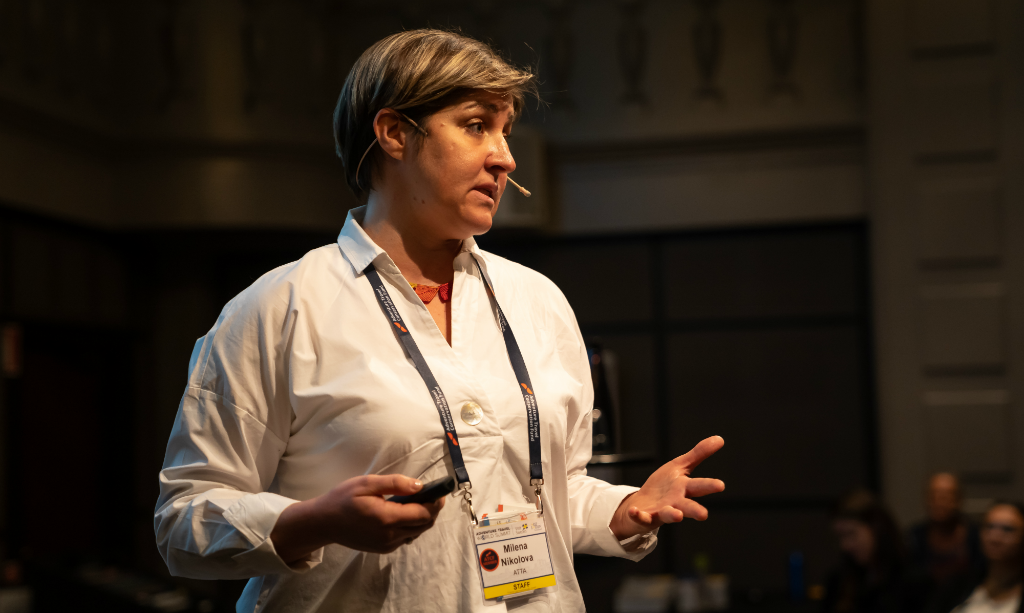The human brain is never more surprising than when making a decision. It often makes choices that run counter to what seems like “good ideas.” It’s influenced by biases deep below the surface, biases that remain dormant until context or circumstances wake them up. Not necessarily the agent of free will we tend to believe it is, the brain can be nudged in invisible ways to make irrational moves — or brilliant ones.

This was the backdrop to the fascinating presentation at Adventure Travel World Summit 2019 by behavioral researcher and the Adventure Travel Trade Association’s (ATTA) director of knowledge and AdventureEDU, Milena Nikolova. Drawing on the material for her upcoming book, Behavioral Economics for Tourism, Nikolova joined Åsa Stanaway, business developer of Västmanland Tourism, to present ideas about how decision-making works (or doesn’t) and how those in the adventure travel industry might use that understanding to effect important change.
Smart Ways: A manual with behavior-smart solutions for increased profitability and sustainability in the tourism industry (free resource)
Thinking, Fast and Slow by Daniel Kahneman
The Honest Truth About Dishonesty: How We Lie to Everyone — Especially Ourselves by Dan Ariely
Nudge: Improving Decisions About Health, Wealth, and Happiness by Richard H. Thaler and Cass R. Sunstein
Nikolova discussed instances where small adjustments executed in line with how the human brain naturally works created significant change. For example, an energy company in the United Kingdom wanted to show customers how much energy they used each month, assuming that customers would then decrease their energy use. However, a direct report of usage didn’t seem to make much of an impression on people. Far more motivating was a direct comparison of customers’ energy use to that of their neighbors. Once people saw how they compared to those living near them, their energy use dropped significantly. Apparently, humans like a good contest.
In another study of childhood obesity, researchers observed kids’ food choices in the elementary school cafeteria. Simply by slicing fruit or vegetables and placing them in a colorful bowl as opposed to presenting the food whole on a plain, stainless steel tray, researchers saw a sharp increase in kids choosing these healthy foods as a snack.
Our minds can make slower, more deliberate decisions but most often don’t, operating instead on an unconscious process that is faster and far more automatic. Using "behavior-smart” thinking, adventure travel professionals can anticipate this fact and structure offerings accordingly. When people better understand how others behave across a variety of contexts, they can tailor products, services, communications, and policies to be more effective and efficient.
Even small changes in what a business offers can have an outsized effect. Jeff Bonaldi, CEO and founder of The Explorer’s Passage, offers mission-based tours that take travelers to carefully selected destinations where purpose always plays a part for more impactful travel. For an Arctic Ocean expedition in June 2019, 86 people from 27 nations joined Bonaldi for a climate change leadership education program on the ship. One of the clients asked if meat would be served on the expedition. “Since we know meat is a big contributor to climate change, we decided to give people the option to go meatless,” Bonaldi said. More than 80% of the group (including many non-vegetarians) went meatless, changing the provisioning of the entire ship for a more sustainable, less energy-intensive menu.
By instating public transportation through Canada’s Banff National Park, park officials saw a drastic reduction in car traffic — the desired result. But Leslie Bruce of Banff & Lake Louise Tourism admitted she learned it wasn’t the environmental message that engaged potential visitors in communications about the public transportation options. It was the convenience messaging (“What’s in it for me?”) that drew the most response.
“Of course we wished it had been the environment that motivated people to take the bus,” Bruce said. “But we’re getting the results we wanted, and we have to celebrate that win.” Again, the change in the way the service was offered was small enough, but the ultimate results were significant. Those working in the adventure travel industry who understand these subtleties of the complex and often surprising human brain can make choices in all aspects of their business to elicit the reactions they desire.
